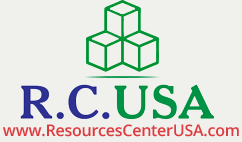- Details
- Category: Travel Travel
- Hits: 6098 6098
The Internet self-serve travel industry is enormous. Americans spent $79 billion on online travel last year. Price and choice are the reasons consumers flock to online travel sites. Internet-savvy consumers are using their Web research and shopping skills to find new travel products and pricing options.
{mosimage} Web watchers predict that spending in this category will grow at around 17% a year for the next five years, totaling $146 billion by 2010. As US traveler customer satisfaction spirals downward, many are saying that self-service is preferable to poor service at even higher prices.
Web watchers predict that spending in this category will grow at around 17% a year for the next five years, totaling $146 billion by 2010. As US traveler customer satisfaction spirals downward, many are saying that self-service is preferable to poor service at even higher prices.
|
US Online Travel |
|
|
2006 |
2010 |
CAGR 2005-2010 |
|
Online travel sales (billions) |
$78.8 |
$145.8 |
16.6% |
|
Households booking online travel (millions) |
37.1 |
51.1 |
8.3% |
|
Average HH annual online travel spending |
$2,122 |
$2,854 |
7.7% |
|
*CAGR = Compound Annual Growth Rate. Source eMarketer |
|||
Satisfaction Slips Off Line: Last year, 22.6% of flights were late - the highest percentage since 2000, according to the U.S. Department of Transportation. Delays aren't the sole result of airline staff and service cuts; the outdated U.S. air-traffic-control system also plays a role in the delay picture. In March of this year, passenger complaints about U.S. airlines nearly doubled from the same month a year earlier, with big increases in gripes about cancellations, delays, and missed connections. That same month, the rate of mishandled baggage rose nearly 33% from a year earlier at the largest 20 carriers, says the Department of Transportation.
Although there are a few service bright spots, by some measures, service is growing worse. For example, the University of Michigan recently released its quarterly American Customer Satisfaction Index. U.S. airlines scored 63 out of a possible 100, their lowest score in seven years. Airlines fared worse than even the Internal Revenue Service. The IRS earned a score of 65 on the 100 point scale. Internet travel sites, although facing some service pressure, scored an average of 75 points.
Internet Travel Types: Web travel sites are of two main types: traditional or transparent sites and opaque sites. Transparent sites tell you during the research and purchase process the airline, hotel, and car company's name. Opaque sites don't tell you which company you are doing business with until you enter your credit or debit card number. Expedia, Orbitz, and Travelocity use a transparent booking process; while Hotwire.com and Priceline.com use the more opaque model.
Competition: When Consumer Reports shopped both site types (traditional and opaque) for five different travel needs it reported, "Priceline offered the lowest rate. Hotwire was usually the runner-up, although in two cases Orbitz matched Priceline's bargain rate." Even though these two opaque sites tend to win the price war, remember that cancellations are never allowed and you are trading off choice for price. If your heart is set on a specific hotel brand, this is not your best choice. As with all the traditional travel sites, you will be paying a small purchasing fee.
Travel Tips: First, think big. Spend a few minutes on a major airline site, hotel, car, and a major Internet Travel site to capture the prices. Don't forget all the "junk" fees so you know the total prices of the ticket, car, or vacation package. Write it down, so you don't need to do your work more than once. Second, get it right. Be sure you have your travel dates and airport codes right. Double check during your purchase process. Third, charge it. Using your credit card can offer you some protection. Fourth, keep it. Print out and keep your purchase receipt and your confirmation. Consider it your technology insurance.
Challenges: Travel sites (e.g. booking engines, social networking, airlines and hotels, online travel agents) like all other online retailers will need to raise their level of play and their web site's customer friendly features. The technology tools used by retailers selling apparel, books, and consumer electronics will have to be matched by online travel companies. Consumers clearly understand that more choices are merely a click away. Pricing and booking details must be easy to find and easy to use. Sites should offer dynamic content, clear pricing, special discounts, social networking features, promotions, and custom offerings to meet the needs of both the boomer, the entrepreneur, and the student backpacker.
© 2007 Resources Center Kamaron Press
